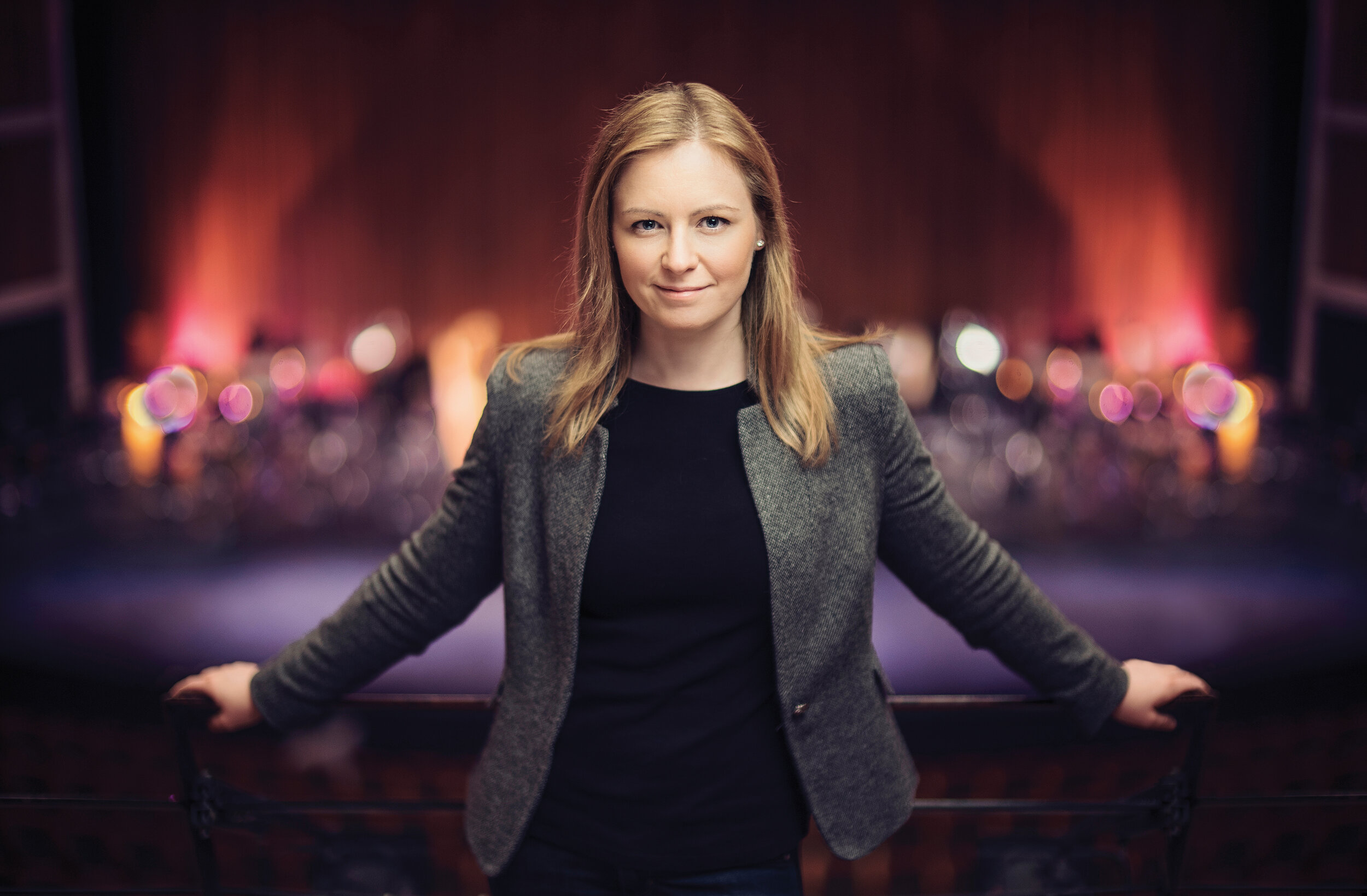Gemma New to make her Milwaukee Symphony Orchestra debut
Gemma New will lead the Milwaukee Symphony Orchestra on February 29, 2020 (Photo credit: Anthony Chang)
Gemma New Prepares for MSO Debut
By David Lewellen
Milwaukee Symphony Orchestra
February 21, 2020
Conducting and collaboration have rarely been found in the same sentence. For the past century or more, the word “autocratic” might have been more common. But times change, and Gemma New, who will debut with the Milwaukee Symphony on February 29, thinks of her job differently.
“I am working with exceptional and highly astute musicians,” New said, “and I naturally want to make them feel both comfortable and free to express their voice while bringing all these voices together with the strongest interpretation we can find. I focus on building a sense of mutual respect and trust, pride in what we create together.”
New, the resident conductor of the St. Louis Symphony, has made debuts with half a dozen major American orchestras in the past few years, so she is in a position to know that “every orchestra does a piece differently.”
When she walks out for the first rehearsal with a stage full of new faces, “I try to get to know as many people as I can, offstage and on.” In Milwaukee, she will already know principal flute Sonora Slocum and assistant principal viola Samantha Rodriguez, among others, from their time together at Lakes Area Music Festival in Minnesota.
“Everyone, including myself, is equally responsible and valuable for contributing their role in the orchestra,” New said. “So I begin in the first rehearsal by listening carefully, and then we start to form the interpretation through conversation, both verbal and aural or gestural. I prepare the score by considering the many different options we have — and although some of these decisions need to be there right from the start, there are often decisions that can be made with the musicians in rehearsal.”
Asked about her conducting mentors, New mentions prominent names of the younger generation such Gustavo Dudamel and Andris Nelsons. But she also fondly remembers Kurt Masur, the late father of the MSO’s Ken-David Masur. In a month-long fellowship in Leipzig, “Kurt Masur shared with us how one must be fascinated and deeply convinced by the details of the music, and strong about sharing them,” she said. “He also frequently acknowledged how important it is for us to love and support one another, and how often music is what unites us across the world. I thought that would be nice to share with you since Ken-David, another conductor I very much admire, is your new music director.”
A native of New Zealand, New played violin as a child and teenager, but she was bitten by the conducting bug early. Her first time in front of an orchestra at age 15, “I immediately knew this was something I wanted to do. I love engaging with people and communicating with others, I love seeing every part, and I’m a detail person.”
For the St. Louis Symphony, she leads two subscription concerts a year as well as holiday pops, family and educational concerts, and more. She particularly enjoys working with the St. Louis Youth Symphony: “I love to see them grow, and their enthusiasm, their passion for music is contagious.”
In addition to her ongoing work in St. Louis, New is music director of the Hamilton Philharmonic in Ontario and principal guest conductor of the Dallas Symphony. Had she made her Milwaukee debut two or three years ago, she would have immediately been part of the speculation about the MSO’s next music director, and the day may come when she takes the top job at a major American orchestra. When the fit is right, “I think you know from the first chord, the first rehearsal,” New said – and she has felt that way with her current permanent jobs, but also with other orchestras. “But much as I would love to, that’s not the way it works. You just have to do that week’s concert, with a good attitude and respect for each other.”
She will make her opera debut this summer with Opera Theater of St. Louis, conducting Carlisle Floyd’s Susannah. “It’s very different from an orchestra concert, where you have four rehearsals,” she said. “This is like a six-week commitment, so it’s good that it’s in St. Louis, where I live. It does require some different skills — working with the voice, knowing when the singer needs to breathe, and integrating words and action onstage.” But with opera, as with family concerts, pops concerts, movie soundtracks and other genres, “we create this toolbox as conductors, and we bring out the right tool when challenges come up.”
To read the full article, click here.

